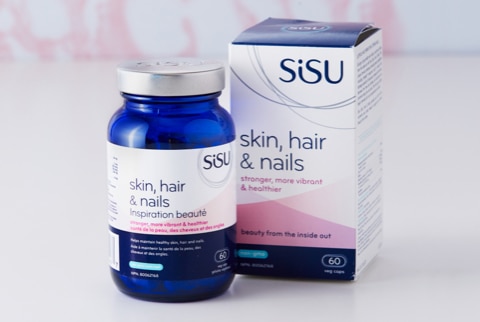

Wintertime can do a number on your skin. As if dealing with winter dryness wasn’t enough, now our skin faces the added problem of “maskne” – acne breakouts that result from wearing a face mask.
Taking care of your skin isn’t only important for beauty reasons (although who doesn’t want to have healthy, glowing skin?); it’s also the body’s largest organ and the only one that comes into contact with the elements of the outside world.
Your skin holds bodily fluids in and keeps harmful microbes out. Healthy skin protects you from the sun’s ultraviolet rays, which can damage cells, while also turning sunlight into the vitamin D your body needs. And while you need hydration to keep skin healthy, healthy skin also helps maintain the body’s temperature.
So what can you do to get healthy, glowing skin?
Let’s take a look.
1. Wear sunscreen every day
It doesn’t matter how many steps your skincare routine has; if you don’t wear sunscreen every day, you’re missing the most important way to protect your skin.
The sun emits two types of UV rays: UVA (ultraviolet radiation) and UVB rays. UVB rays are the ones that cause sunburn, and their intensity ranges from summer to winter. However, UVA rays penetrate deeper into the skin, causing ageing and wrinkles.1
Wearing a mineral sunscreen every day is the best way to protect your skin against UVA rays.
2. Take care of your gut
Skin health starts from the inside out. In the same way that what you eat affects your energy levels or immune health, it can also manifest itself on your skin.
The gut provides a barrier between the interior of the digestive tract and your circulatory system. Anything that irritates the lining of your gut can cause it to become inflamed. This could be anything from food allergens, alcohol, medications, antibiotics, food additives and artificial colouring, to diets low in fibre and high in sugar. When the gut is irritated, it can ramp up your body’s stress response, causing irritated skin.2
Eating various fruits and vegetables and paying attention to which foods cause skin irritation can help you maintain a healthy gut-skin relationship.
3. Add a skin-supporting supplement to your routine
Like gut health, adding a skin-supporting supplement is another way to focus on beauty from the inside out. Let’s take a look at a few of our favourites:
Sisu Hair, Skin, & Nails
This formula takes a multi-faceted approach to skin health by combining effective skin-supporting ingredients, including Hyabest™ hyaluronic acid, zinc, horsetail extract, and more. Hyaluronic acid is a substance naturally produced by your body and held mostly in the skin. It helps to retain moisture and improves skin appearance by increasing skin hydration.
Zinc Citrate
Zinc isn’t only important for a healthy immune system; it’s also a major skin-supporter. Although more research is needed on how exactly zinc helps the skin, it has been found to improve the appearance of skin.3 Sisu Zinc Citrate helps to maintain healthy skin, and offers 30 mg of zinc per serving and is vegan and non-GMO.
Or, try Sisu Zinc Lozenges for a tasty way to get your zinc on the go.
Biotin
You may be familiar with taking biotin for healthy hair, but it’s also useful for healthy skin, too. Sisu Biotin 5000 is a high potency formula that helps to maintain healthy skin, hair, and nails and is vegan, non-GMO, and gluten-free.
4. Stay hydrated
Healthy foods and skin-supporting supplements aren’t the only things you should put in your body to support healthy skin – drinking lots of water is just as important. The skin is an organ, which means that it needs water to function correctly. Staying hydrated helps the physiology of the skin and prevents tightness or dryness.4 A healthy adult should drink four to six glasses of water each day, although your needs may change depending on your activity level or personal health.5
5. Keep skin clean and moisturized
Other than applying sunscreen, cleansing and moisturizing your skin are two of the most important steps in your skincare routine. Cleansing your skin twice a day – in the morning and at night – removes dirt, pollution, excess oil, and unwanted skin cells off your face. If not cleansed properly, dirt and pollution can collect at the skin’s surface, potentially causing breakouts, dehydration, and ageing.
After cleansing and applying any topical treatments, moisturize your face and neck thoroughly to lock in moisture. Moisturizing every day reduces oiliness and dryness and helps keep the skin’s moisture barrier (or stratum corneum) healthy.
6. Wash your face mask
Call it a sign of the times: acne caused by wearing a face mask, also known as “maskne,” is now a prevalent skincare concern. Thankfully, there are ways to fight it. Washing your face mask frequently, taking a break from make-up, and choosing a 100% cotton face mask can help your skin breathe and recover.
7. Get adequate sleep
In the same way that a lack of sleep causes dullness or dark spots on your skin, a good night’s sleep can have amazing benefits for your skin. During sleep, the skin’s blood flow increases, and the organ rebuilds its collagen and repairs damage from UV exposure, reducing the look of wrinkles and age spots.6 7 Adults should aim to get seven to nine hours of sleep each night.
8. Manage your stress
How you feel on the inside can significantly affect your “outside,” especially when it comes to stress. Stress can cause new skin issues to develop or can cause old skin issues to flare up. When you feel stressed, your sympathetic nervous system releases stress hormones like cortisol and adrenaline into your body. Cortisol causes increased oil production in your glands, which can lead to clogged pores and acne breakouts. Stress can also cause an inflammatory response, causing the skin to appear inflamed.8
Sisu Stress Rescue L-Theanine uses the relaxing effects of L-theanine, helping to temporarily promote relaxation.
9. Get your body moving
Really, what doesn’t regular exercise do? During exercise, the increased blood flow helps nourish skin cells and keep them vital. Blood flow also helps carry away waste products, like free radicals, from working cells.9
Some people may think that exercising makes their skin worse due to increased sweating. However, breakouts caused by sweat have less to do with exercising and more to do with what you do before or after you exercise. Before exercising, use a makeup wipe or cleanser to remove your makeup. After exercising, immediately rinse off your face and body to avoid sweat sticking to your skin.

Get that glow
Beautiful skin is healthy skin. Focusing on improving your health from the inside out can help give you the youthful, glowing skin you crave.
To add more quick health and wellness tips to your feed, follow us on Instagram! (@sisuvitamins)
Always read and follow the product label. Products may not be suitable for everyone.
1 https://uihc.org/health-topics/what-difference-between-uva-and-uvb-rays#:~:text=There%20are%20two
%20basic%20types,are%20responsible%20for%20producing%20sunburn.&text=In%20addition
%2C%20the%20UVA%20rays,including%20wrinkle%20formation%20(photoaging)
2 https://cdhf.ca/health-lifestyle/how-does-your-gut-health-affect-your-skin/
3 https://www.ncbi.nlm.nih.gov/pmc/articles/PMC4120804/
4 https://www.ncbi.nlm.nih.gov/pmc/articles/PMC4529263/
5 https://www.health.harvard.edu/staying-healthy/how-much-water-should-you-drink
6 https://www.ncbi.nlm.nih.gov/pmc/articles/PMC5451790/
7 https://pubmed.ncbi.nlm.nih.gov/25266053/
8 https://www.ncbi.nlm.nih.gov/pmc/articles/PMC4082169/#:~:text=Skin
%20mast%20cells%20are%20activated,psoriasis%20and%20pruritus%20%5B217%5D
9 https://www.ncbi.nlm.nih.gov/pmc/articles/PMC6627972/

